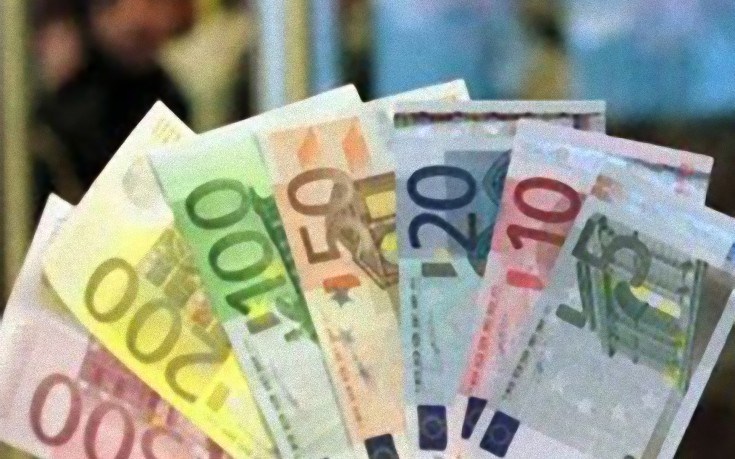People who are just embarking on the path of creating their own business should be prepared not only to give a large amount of energy and energy for profit, but also to display a large number of different talents. Among them:
- the ability to calculate and analyze the situation;
- feel consumer demand;
- successfully deal with other manufacturers:
- fight against unfair competition.

As for the last factor, it is he who is capable of destroying at the root only a business that has begun to develop, nullifying all the positive aspects of activity. Consider the concept and forms (types) of unfair competition. This will allow a better study of the processes occurring in the market of commodity producers.
Definition of a concept
The participation of companies in market relations is regulated by the state. According to the Constitution of the Russian Federation (Part 2 of Article 34), any economic activity aimed at creating the conditions for the existence of unfair competition is prohibited.
What does this concept mean? Unfair competition is understood as any actions carried out by a group of persons or business entities aimed at obtaining certain advantages in doing business, which contradicts the current legislation of the country, the requirements of reasonableness, fairness and integrity, as well as the customs of business relations, or that can harm business reputation of competitors and inflict losses on them.
Key features
What actions taken by a legal entity can be attributed to unfair competition? They are in the features listed below.

- Business entities operate in one market entity, while being competitors.
- The actions taken by the legal entity contributed to or caused losses to competitors, could cause harm or damage to their business reputation.
- The business entity, in the course of its activities, violated the relevant legal acts of the legislation of the Russian Federation, the requirements of reasonableness, fairness and integrity, or the established customs of business relations.
- As a result of some actions of the business entity, advantages were obtained in the form of a dominant more advantageous position in the commodity market compared to competitors.
All the signs mentioned above must certainly be present in the actions of a certain economic entity. Only in this case can we talk about the presence of unfair competition. If at least one of the four signs is missing, then the actions of the legal entity are considered legal.
Consider the types of unfair competition reflected in the Federal Law.
Distortion of information
Starting to get acquainted with the concept of unfair competition, and its types, it is worth considering the form that is explained in the Law "On Protection of Competition", in its clause 1, part 1 of article 14. It refers to the spread of inaccurate, distorted or false information about the business entity that may cause him losses or damage to business reputation.
And here it is worth paying attention to one caveat. According to the legislative act mentioned above, such an offense includes not only the dissemination of false information. Information may be distorted or inaccurate. Such a moment is of great importance for legal practice. Indeed, sometimes unscrupulous competitors avoid direct attacks. They prefer to use veiled remedies.Nevertheless, such legal entities discredit their competitors, seeking to attract consumer attention to their own products. Most often they disseminate false information about other manufacturers, about their services and products.
It is worth noting that if we consider the types of unfair competition, then the distortion of information is such a form of this concept that can adversely affect the manufacturer who disseminated inaccurate information. This will happen if they are found to be false. Losses will be incurred by the consumer, misled by distorted information.

Sometimes an economic entity, choosing this one from all types of unfair competition, disseminates information about itself that does not correspond to reality. At the same time, it does not at all seek to discredit enterprises located in the same market segment. Nevertheless, by its measures the subject is capable of harming other legal entities, which may qualify as unfair competition.
Misleading
We continue to consider the concept and types of unfair competition. Its next form is reflected in paragraph 2 of the first part of article 14 of the Law. It considers misleading actions regarding the place and method of manufacture, quality, quantity and consumer properties of the product or in relation to its manufacturer.
The main goal of illegal activities conducted by business entities is to attract the attention of the client to their products. In this case, the distribution of distorted information also takes place. However, the first and second types of unfair competition, discussed above, have certain differences among themselves. What are they? In the first case, false information occurs in relation to other manufacturers. In contrast, misleading the consumer is carried out in the form of a distorted statement about their product.
Among the types of unfair competition in Russia, this is the most common. Moreover, the competitor can be discredited not only in the form of deliberately fraudulent statements. Some assertions that create false ideas about the product are sometimes misleading.
Thus, the law prohibits the use of instructions that mislead the consumer regarding the place of production of a thing. For example, if a woman’s bag indicates that it was made in Italy, and only materials were imported from this country, then in this case the buyer receives incorrect information. The geographical name is used illegally. At the same time, the norms regarding the protection of consumer rights can be implemented, and the types of unfair competition in the form of misleading the buyer are punishable.
Invalid comparison
This is the next form of unfair competition and its types. Civil law, it is considered in the third paragraph of the first part of article 14 of the law, which is called "On Protection of Competition". This document refers to the incorrect comparison of goods produced by a legal entity with those sold by other business entities.
If we consider unfair competition and its types, then this of them sometimes manifests itself as an independent device. Sometimes it is included in the list of actions that are aimed at discrediting a competitor or at misinforming a consumer.

A vivid example of this is the maker of kvass “Nikola”. In his advertising, he contrasted his own product with Coca-Cola. At the same time, slogans like “Drink to Nikol, kvass - not cola” were used.
It is worth noting that all types and forms of unfair competition are also present on the world market. They cause condemnation from manufacturers. However, regarding the reception of incorrect comparisons, opinions on the question of the admissibility of such actions were divided.Some economists have supported criticism of a rival firm. At the same time, they emphasize that it should have truthfulness and be based on facts. Others believe that this phenomenon should not have a place in the relations of companies.
As for the Russian legislation, it does not prevent the conduct of truthful criticism of competing firms. However, even in this case, such statements should be regarded with suspicion, given the clear interest of its authors.
Unauthorized use of third-party intellectual property
The concept and types of unfair competition, the Law continues to consider its fourth paragraph of the first part of article 14. Here we are talking about preventing the sale, exchange, and other introduction of goods into the market, if in this case funds were used that are the results of the intellectual activity of a legal entity. Such a form of unfair competition can cause a confusion of the goods of a competitor and his activity, resulting from a violation of the rights to the results of intellectual activity, which are:
- Database;
- works of art, literature and science;
- phonograms;
- performance;
- programs written for computers;
- company names;
- industrial designs;
- inventions;
- utility models;
- Messages in TV shows, on the air or by cable;
- know-how;
- selection achievements;
- signs, both services and trademarks;
- commercial designations;
- brand names.
Industrial espionage
This is the last type of unfair competition in the market, which is reflected in the first part of article 14 of the above Law. Such espionage constitutes the unlawful receipt, disclosure and use of information that constitutes official or other secret, which is under legal protection. The norm of paragraph 5 of the first part of Article 14 is aimed at preventing cases of such unfair competition. This includes the use and dissemination of production secrets, information about which is valuable in the process of conducting competition. This can be technological, scientific, technical, financial, economic and other data, including those that make up the secrets of the company (its know-how).
Other forms of discrimination against competitors
Manifestations of the market struggle between companies located in a single segment are not limited to the cases described in the first paragraph of Article 14 of the Law. In particular, as a result of the changed conditions in Art. 14 a new provision was included. It was reflected in the second part of this article and pointed out the inadmissibility of unfair competition in the form of purchases and further use of rights to available means of individualization.
Starting from 01.01.2008, the norm enshrined in the Civil Code began to apply in Russia. According to it, the provision of legal protection to existing trademarks is recognized as invalid if the manipulations that were associated with their state registration had signs of unfair competition.

However, there is no exhaustive list of such actions in the legislation. That is why if someone is offered the following: “Choose the types of unfair competition included in the Law from those that took place in any particular case,” it will be very difficult to do. In this regard, such actions are understood to mean everything that contradicts legal norms, causes losses to companies, etc.
A responsibility
A business entity that has become a victim of unfair competition may require:
- cessation of illegal activities;
- compensation for losses incurred by him.
The victim has the right to appeal either to the antimonopoly authority or to the court.A legal entity that has allowed unfair competition may be held either administratively or criminally liable. But at the same time there must be evidence, namely:

- facts of the spread of false information by the person who filed the application;
- incorrect information;
- the likelihood of benefits as a result of actions taken by the defendant;
- the ability of these measures to inflict losses on the business entity or spoil its business reputation.
Fighting drug manufacturers
As an example, consider the types of unfair competition in the pharmaceutical market. Here, companies are discredited, as a rule, in the appearance in the retail pharmacy network of smuggled and falsified drugs. According to existing estimates by some experts, the real share of such goods in Russia ranges from 10% to 40%.
Unscrupulous companies in their attempt to profit by any means spread defamatory rumors about competitors, use their logos and parasitize on someone else's name.
And here the lack of legislation affects. After all, it does not contain a complete list of actions falling under the concept of “unfair competition”. Courts interpret this term at their discretion. The companies themselves do not have a conscious understanding of this issue.

The Russian legislation is also unfinished regarding the state registration of pharmaceuticals, as well as their quality control. The necessary documents in this case are issued to any means that first appeared on the country's market and passed the appropriate examination. A similar loophole of legislation is used by pharmacological companies. They register their products in such a way that they are as close as possible to the products issued by market leaders. This leads to the fact that pharmaceutical and parapharmaceutical drugs with the same name are often adjacent to the pharmacy shelf.
Sometimes unfair competition is expressed in outright counterfeiting, packaged under the brand.
Sometimes companies do not hesitate to point out to regulatory authorities on the shortcomings that other firms have. But it also happens that competitors do not have to look for flaws. The fact is that the manufacturers themselves provide false information about themselves to the Ministry of Health and the antimonopoly services. Thus, they try to convince these bodies of their superiority, but only spoil their own reputation.
